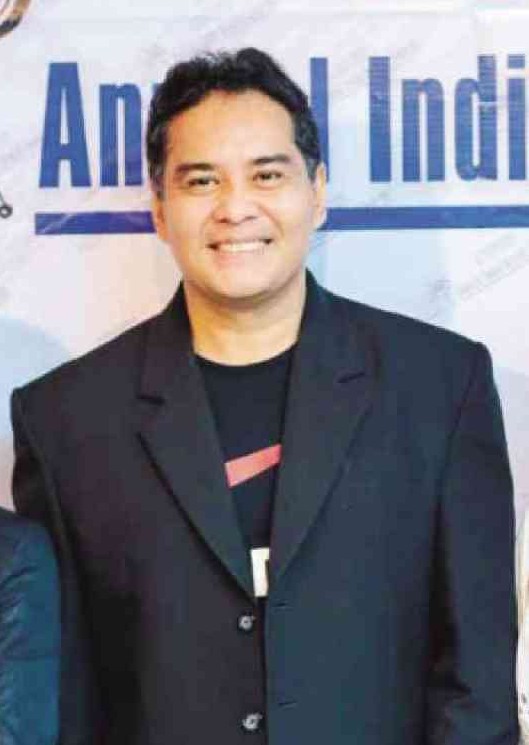Unity in the mess
As an acclaimed filmmaker would succinctly put it: If there is one good thing that came out of the whole Cathy Garcia-Molina controversy is that it would once again start a hopefully healthy dialogue on workers’ rights and changing the prevailing system in show business.
Directors, actors and producers weigh in on the raging issue:
John Arcilla, actor: We should look at the [talent] suppliers’ credibility first. Suppliers should be registered and supervised by a head or a team licensed by universities, cultural companies and organizations. Every network should remind directors and their staffers… to manage stress on the set. I’ve been hearing real stories from bit players of unfair treatment… that some talents only get P150 to P300 due to cuts from unscrupulous people. I am not discouraging the formation of an actors’ union. I am for equal treatment… Even big stars need unions.
Ellen Ongkeko-Marfil, director-producer: This is not to condone bullying or abuse. Groups always need to fight for basic human rights aside from economic and political rights. I once worked for a big director who always cursed the talents. He threw a shirt at one guy, and the extra threw it back at him. Alvin Campomanes, whose complaint has gone viral, is exercising his right, and discussions like these will help improve the industry and the human race in general.
Liza Diño, actress: We have to set standards first and clarify the job description of people. What is an extra in the Philippine context? What are background actors (those who have no lines and only play passers-by or party guests) and bit players? In the Philippines, if you are not famous, you are dismissed as an extra right away. Some companies hire extras and pay them P500 or P800 (if they have speaking lines), yet they’re expected to be trained like the pros. I am all for unions, but we need to professionalize the entire industry.
Tessie Tomas, actress: Unions for talents and bit players are long overdue in this country. HBO and the Australian producers of “A Dangerous Life” (where I played Imelda Marcos) were surprised to know that the Filipino cast did not have a union. Unions should fight for fair rates, royalties especially for reruns of our old shows, actors’ equity, insurance coverage, etc. It’s sad when you hear that most producers say they will avoid union members, because they will cause trouble.
Maria Isabel Lopez, actress: It is unfortunate that [some workers of] the film and television industries are not covered by labor laws. This has been a long struggle since the days of Lino Brocka in the 1970s and 1980s. Campomanes is just one voice—but it’s time for thousands of small players in the industry to protest the unfair treatment. And it’s also time to amend our laws. It’s time for change. Workers should unite! Thanks to the power of social media! This is not just a matter of who is right or wrong; it is about feelings that were hurt.
Alemberg Ang, producer: Actors should form unions to professionalize the industry and to ensure that the rights of all workers will be observed.
Bernardo Bernardo, actor: There should be a union to protect the rights and welfare of actors. It’s 2016, and professional actors are still treated like contractualized mall workers without benefits whatsoever. Things to consider: insurance, health benefits, standard basic rates, more humane working hours (eight hours should be the standard limit with option for additional four hours with overtime pay), royalties for replays, syndication, DVD sales and use of actors’ image for merchandise sales. Another consideration: It would help greatly if big stars… support this advocacy. This was how it worked in the United States.
Sid Lucero, actor: I do believe that someone should protect these people, especially from the job itself. Talents, extras and bit players don’t get paid much at all, and the conditions they have to work under are far from fair. Then again, if we can’t protect the children from [unreasonable] work hours… what more the extras?
Mel Chionglo, director: For many years, film workers’ attempts to organize have been frustrated for varied reasons. Bit players can air grievances through the Actors’ Guild. Unions should tackle working conditions and remuneration.
Shamaine Centenera-Buencamino, actress: I wish unions can work for us, but unfortunately, they sometimes don’t. Nobody stays long enough to make sure that conditions are respected. And when they’re not, nobody really goes to court to defend their rights. But if there are those who will seriously commit to running an actors’ union, it should fight for humane working conditions: A maximum number of working hours, similar food and holding area for all talents, regulated talent fees for bit players that are paid directly to them, etc. In return, actors who belong to a union should be trained and professional. Both parties have to benefit for unions to survive. Abusive behavior like physical and verbal abuse or public humiliation should not be tolerated. However, I come from the theater, and I understand artists’ temperament. Sometimes, it’s really part of the job—after all, we are dealing with emotions!
Lui Quiambao-Manansala, actress: I hear there’s a clamor… to unionize. Who will take the lead? What laws have actors-turned-legislators passed to protect industry workers’ rights? What happened to the resolutions… to improve the working conditions? What now?
Tommy Abuel, actor: It’s about time. Unfortunately, it’s so difficult to organize and unite show biz people. But there is strength in unity. Regarding the controversy, the only person who can reprimand an erring director would be the producer [who hired the director]. If there’s a union, workers can be protected and assured that they will be treated with courtesy and respect. Unionizing is long overdue, but how do we go about it? Who will lead us? Who will fight for us… someone who’s not afraid to be blacklisted? It’s difficult because everyone is dependent on networks and some managers are connected to studios, too.
Jeffrey Jeturian, director: Before they form a union, the extras should first professionalize their ranks so they can deserve the rights and privileges that they hope to fight for.
Joji Alonso, producer and lawyer: Off-hand, the use of the term “union” for bit players is misplaced since legally, there can only be a union if an employer-employee relationship exists, which is not the case for actors/actresses in film productions. A better term would be a guild or association. [Filmmaker] Chris Martinez’s suggestion to professionalize the work of bit players is full of wisdom as it will reduce the headaches of creative people in dealing with extras who fail to deliver because they are, in fact, ill-prepared [for the job]. Similarly, bit players would be shielded from abuse. Sadly though, it will take years before things will be well in place, because there are just too many people who want to become actors or want to earn a quick buck and who would be all too willing to silently endure abuse just to see themselves on television or in the movies or make some money to put food on the table.




